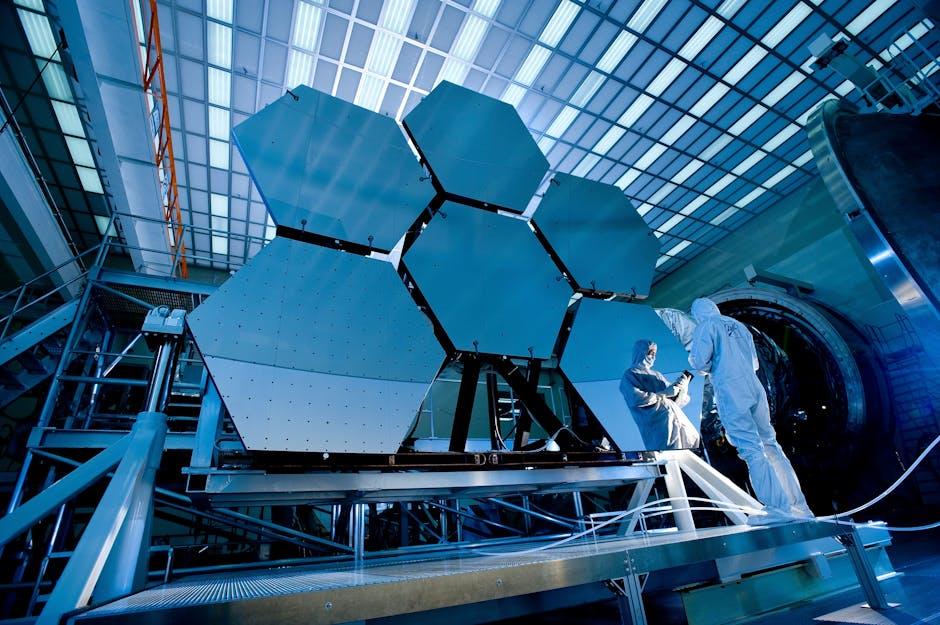In a realm where science fiction meets reality, the fascinating intersection of James Lovelock’s Gaia theory and artificial intelligence (AI) emerges as a captivating topic of exploration. Delving into the visionary mind of Lovelock and the transformative potential of AI, this article embarks on a journey to unravel the intricate connections between the natural world and the boundless realms of technology. Join us as we delve into the intriguing fusion of Lovelock’s ecological wisdom and the evolving landscape of artificial intelligence.
Table of Contents
- Exploring James Lovelock’s Views on the Future of AI
- Unveiling the Relationship Between Gaia Theory and Artificial Intelligence
- Analyzing James Lovelock’s Predictions on AI’s Impact on the Environment
- Drawing Inspiration from James Lovelock’s Perspective for Ethical AI Development
- Q&A
- Concluding Remarks

Exploring James Lovelock’s Views on the Future of AI
James Lovelock’s perspective on the future of artificial intelligence (AI) delves into the realm of complex interconnections between human civilization and technology. Lovelock’s holistic approach to AI envisions a future where machine intelligence harmoniously integrates with the natural world, bridging the gap between human ingenuity and planetary ecosystems.
Embracing Lovelock’s views opens up thought-provoking discussions on the ethical implications of AI development, emphasizing the importance of sustainability and maintaining ecological balance. His visionary stance invites us to reimagine AI not as a separate entity but as a vital component of a interconnected system, where the advancement of technology coexists symbiotically with the preservation of our environment.
Unveiling the Relationship Between Gaia Theory and Artificial Intelligence
Exploring the intricate dance between Gaia Theory and Artificial Intelligence unveils a fascinating interplay of organic systems and technological advancements. Both concepts, seemingly disparate at first glance, share a common thread of interconnectedness and adaptation.
<p>By delving into Gaia Theory's principles of Earth as a self-regulating organism and AI's capacity for learning and evolution, we unearth a realm where nature meets innovation. **This convergence sparks discussions on sustainability, intelligence, and the very essence of life itself.**</p>
Analyzing James Lovelock’s Predictions on AI’s Impact on the Environment
Exploring the futuristic landscape envisioned by James Lovelock, we delve into the intriguing realm where artificial intelligence intersects with environmental sustainability. With a keen eye on the potential impacts of AI on our planet, Lovelock’s predictions offer a thought-provoking glimpse into the intricate dance between technology and nature.
In Lovelock’s forecast, the harmonious coexistence of AI and the environment stands as a pivotal point of discussion. As we navigate this uncharted territory, contemplating the synergy between technological advancements and ecological balance becomes paramount. Embracing the challenges and opportunities presented by AI, we embark on a journey towards a sustainable future guided by innovation and mindful stewardship.

Drawing Inspiration from James Lovelock’s Perspective for Ethical AI Development
Drawing inspiration from James Lovelock’s perspective can significantly influence the ethical development of AI. Lovelock’s Gaia theory, which views the Earth as a self-regulating organism, can offer valuable insights into creating AI systems that prioritize sustainability and harmonious coexistence.
In the realm of AI development, embracing the interconnectedness of all elements, much like Gaia theory proposes, can foster the creation of AI technologies that align with ethical standards. By considering the intricate web of relationships between AI, humans, and the environment, developers can strive to design systems that not only function efficiently but also contribute positively to society and the world at large. Embracing diversity in AI teams and approaches, fostering transparency in algorithms, and prioritizing ethical considerations can all stem from drawing inspiration from Lovelock’s holistic perspective.
| Key Points: | Benefits: |
|---|---|
| Embracing diversity | Enhanced creativity and innovation |
| Fostering transparency | Increased trust and accountability |
| Prioritizing ethical considerations | Positive societal impact and trust-building |
Q&A
**Q: Who is James Lovelock and what is his connection to AI?**
A: James Lovelock is a renowned British scientist, best known for proposing the Gaia hypothesis, which views the Earth as a self-regulating system. Despite being primarily focused on environmental science, Lovelock has also ventured into the realm of artificial intelligence (AI) with his captivating ideas.
Q: What is Lovelock’s perspective on AI and its impact on the future of humanity?
A: Lovelock sees AI as a double-edged sword, capable of both immense benefits and potential risks for mankind. In his thought-provoking insights, he argues that AI could either lead to a harmonious coexistence with nature or spiral into a catastrophic scenario if not carefully managed.
Q: How does Lovelock’s holistic approach influence his views on the intersection of AI and environmental sustainability?
A: Lovelock’s holistic approach emphasizes the interconnectedness of all living organisms with their environment. He believes that integrating AI into sustainable practices can help address pressing environmental challenges, such as climate change, by fostering innovation and facilitating efficient resource management.
Q: What sets Lovelock’s perspective on AI apart from other scientists in the field?
A: Unlike many other scientists who solely focus on the technical aspects of AI, Lovelock brings a unique perspective that intertwines ecological principles with technological advancements. His interdisciplinary approach prompts us to reflect on how AI developments can align with the preservation of our planet’s delicate balance.
Q: What can we learn from Lovelock’s insights on AI and its implications for the future?
A: By delving into Lovelock’s forward-thinking ideas, we are challenged to reevaluate our current relationship with technology and nature. His contemplative stance on AI serves as a poignant reminder of the need for responsible innovation and ethical considerations in shaping a sustainable future for generations to come.
Concluding Remarks
In conclusion, exploring the intersection of James Lovelock’s Gaia theory and artificial intelligence opens up a fascinating realm of possibilities. By contemplating the potential synergies and ethical considerations, we are prompted to reflect on the future of our relationship with technology and the environment. As we navigate this evolving landscape, let us channel Lovelock’s holistic perspective and embrace the ongoing dialogue between humanity, nature, and AI. May we strive to cultivate a symbiotic coexistence that honors our interconnectedness and paves the way for a sustainable and harmonious future. Join us on this thought-provoking journey as we delve deeper into the intricate tapestry of science, consciousness, and innovation.



0 Comments